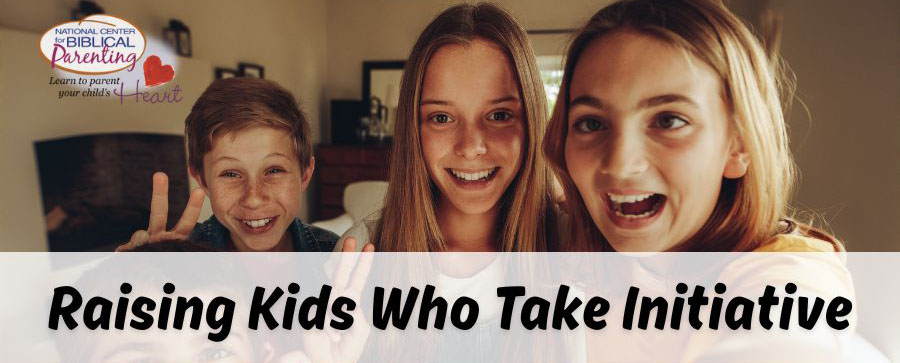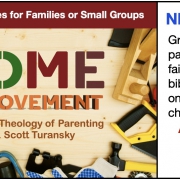What Lying, Cheating, or Stealing Reveal About the Heart

It’s not just about the lie. Or the sneaky behavior. Or the missing piece of candy. When a child is dishonest, it’s easy to focus on the behavior in front of you and forget that something deeper is going on beneath the surface. But in parenting, especially if we want to build long-term character in our children, it’s essential to ask: What does this behavior reveal about my child’s heart?
That’s what makes a heart-based approach to parenting so powerful. Instead of just trying to stop the behavior or deliver the perfect consequence, it teaches parents to look underneath—to explore what’s driving the dishonesty. When we recognize that lying, cheating, stealing, and mischief are symptoms of a deeper problem, we’re in a better position to bring long-lasting change.
In our session on integrity from the course How a Heart-Based Approach Changes Everything, we unpack this idea with practical tools to help parents guide their children toward honesty from the inside out. But here’s a key insight worth exploring on its own: dishonesty has symptoms, and each one gives parents a chance to shape the heart.
Dishonesty Has Many Faces
Some kids lie boldly, while others bend the truth subtly. Some steal candy or hide broken toys, while others manipulate rules or play dumb. One of the big mistakes parents make is treating dishonesty as a single issue. But if you take a closer look, dishonesty often appears in four distinct forms: lying, cheating, stealing, and mischief.
Lying is the most obvious. A child says something that isn’t true—often to avoid consequences, gain an advantage, or save face. But a lie isn’t just a bad choice; it’s often a sign that the child is fearful, self-protective, or impulsive. Addressing the lie means addressing the fear or mindset that produced it.
Cheating shows up in schoolwork, games, or situations where a child is trying to gain success without effort. It’s not just about wanting to win—it may signal a fear of failure, a need for approval, or a poor understanding of integrity. If we only deal with the act of cheating, we miss the opportunity to reshape the child’s values and self-perception.
Stealing usually reflects a deeper entitlement. Whether it’s a toy, money, or a sibling’s belongings, stealing often signals a lack of empathy or poor boundaries. But it can also be a cry for attention or a sign of deeper frustration.
Mischief is the most subtle. It may look like pranks, sneaky behavior, or “harmless fun,” but it can reflect a disregard for limits or a craving for power and control. When mischief is recurring, it’s often a sign that the child enjoys manipulating the rules and watching others react.
Each of these symptoms matters—not because of what they do to our authority, but because of what they reveal about a child’s heart. And that’s where real change can begin.
Don’t Just Correct—Train
When we catch a child being dishonest, the temptation is to focus on punishment. “You lied—you’re grounded.” “You stole—you’re paying for it.” While consequences are important, they don’t necessarily develop the character we want to see. If we want to raise kids of integrity, we have to go beyond correction. We have to train.
Training means helping your child see the problem, understand the why behind it, and practice new patterns that build integrity. It starts with a conversation, not a lecture. Instead of saying, “Why would you do that?” try, “Help me understand what was going on inside you when you made that choice.”
Training also means practice. If a child lies, give them a task where they have to report back with the truth—and then affirm them when they do. If a child cheats, create an opportunity where effort and honesty matter more than results. If a child steals, involve them in the process of restitution and repair.
One powerful strategy is what we call Integrity Missions—small assignments given to a child to help them rebuild trust. These missions aren’t about catching them again. They’re about giving them a chance to succeed, step by step, as they walk the road back to trustworthiness.
Link Privileges to Responsibility
One of the most practical ways to help children grow in integrity is by connecting privileges to responsibility. In other words: If I can’t trust you, I can’t give you freedom.
This isn’t a threat—it’s a life principle. Trust opens doors. Dishonesty closes them. When your child lies, steals, or cheats, it’s okay to say, “Right now, I’m not comfortable giving you that privilege because trust has been broken. But here’s how we can work together to rebuild it.”
This approach not only protects your family—it teaches your child that actions have relational consequences. It builds emotional awareness. And it invites your child to step into responsibility, not just as a rule-follower, but as a person who values integrity.
We also encourage parents to teach children about what we call the Integrity Package—a set of invisible gifts that come with being trustworthy. It includes the benefit of the doubt, more freedom, less supervision, and deeper respect. When a child loses these things through dishonesty, they can earn them back—but only through intentional action. Helping kids understand that these “extras” are part of the reward for integrity is one of the most powerful motivators a parent can use.
Integrity Grows in the Everyday Moments
You don’t have to wait for a major act of dishonesty to start building integrity. In fact, the most effective training happens in the small, everyday interactions—when your child finishes a chore, does their homework, plays fairly, or chooses not to blame a sibling.
That’s why accountability matters. Checking in regularly doesn’t mean you don’t trust your child—it means you’re helping them grow. When a parent follows up and inspects what they expect, they’re communicating that details matter, truth matters, and integrity is worth the effort.
So whether your child is 5 or 15, remember this: every moment of truthfulness is an opportunity to reinforce character. And every symptom of dishonesty is a chance to train the heart.
If you’re dealing with dishonesty right now, don’t lose heart. Your child’s behavior isn’t the final word. It’s a starting point for a bigger conversation—and a bigger transformation.
This idea is just one part of a full session in the parenting course How a Heart-Based Approach Changes Everything. If you’re ready to stop reacting and start training the heart, I invite you to explore more.Check out the course here: app.biblicalparenting.org/it-changes-everything
It’s full of biblical insights and practical tools to equip you for real change in your home.











Leave a Reply
Want to join the discussion?Feel free to contribute!